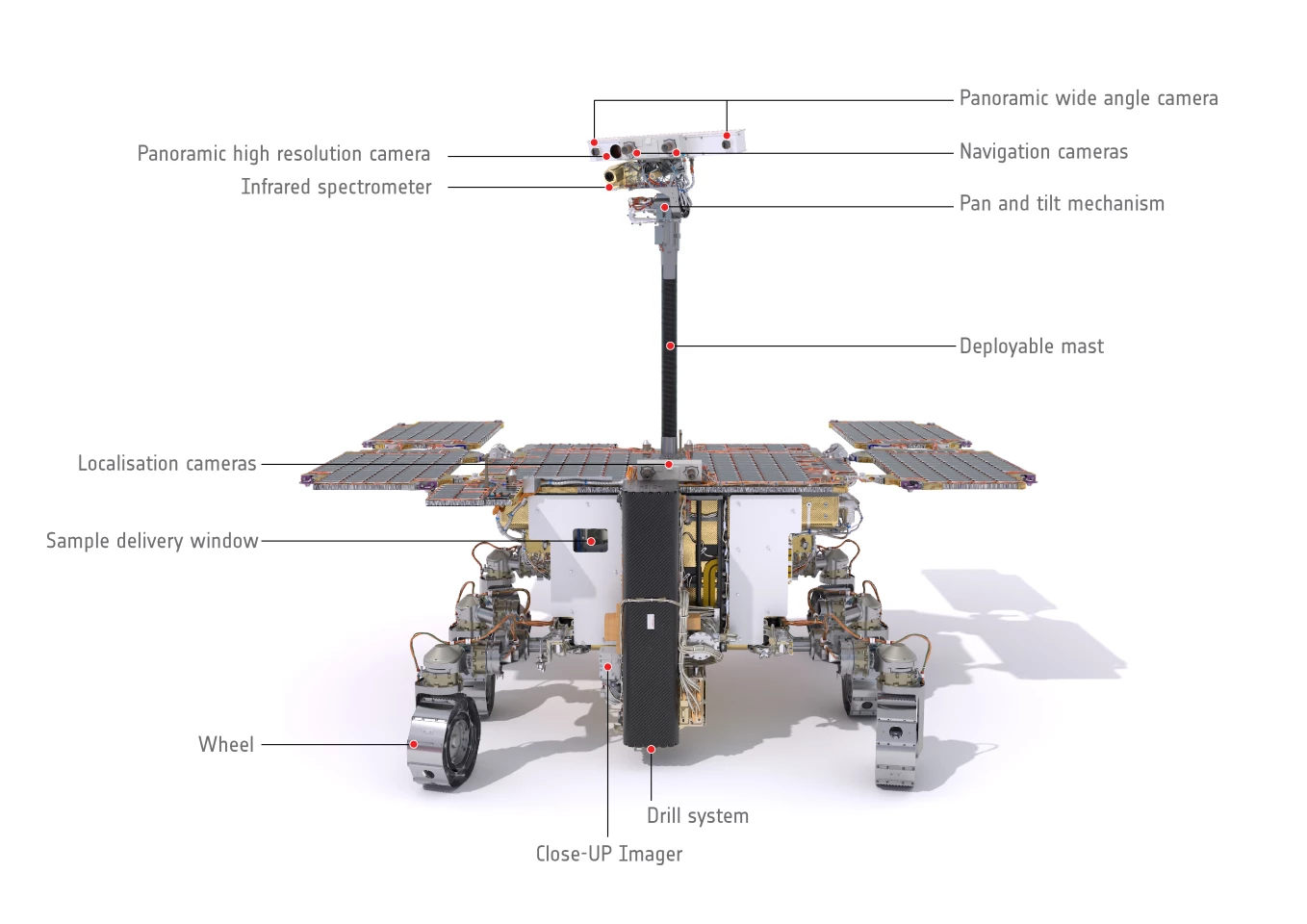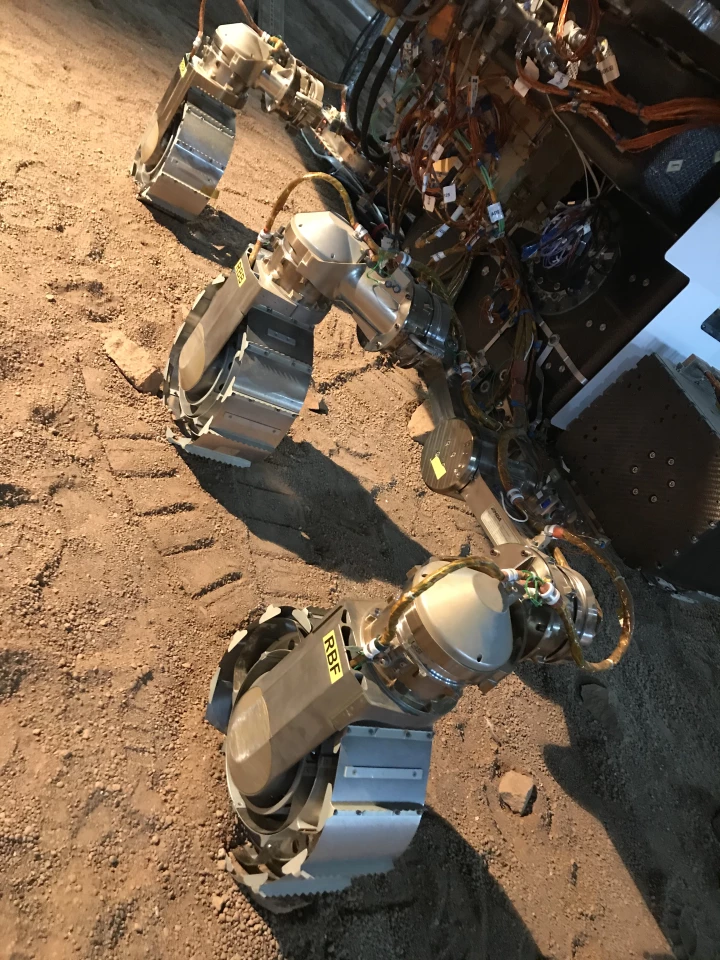With the invasion of Ukraine severing its cooperations with Russia's Roscosmos, the European Space Agency (ESA) is now considering alternatives to get its ExoMars Rosalind Franklin rover to Mars without Russian support hardware.
The Rosalind Franklin rover can't seem to catch a break. Originally slated to launch in 2018, it has faced several delays due to technical problems and COVID-19 restrictions. The latest launch window was supposed to open on September 22, 2022, but the Russian invasion of Ukraine put paid to that.
The original plan was for the rover and a German-built cruise stage to launch into space atop a Russian Proton rocket. When the mission reached Mars, the rover would then descend to the surface using a Russian-built landing craft. Unfortunately, relations with Moscow have deteriorated to the point where the 2022 launch has not only been scrubbed, but ESA's Review Board is looking for another ride.

This isn't easy because a Mars mission isn't like putting a satellite into Earth orbit. The energy needed to boost a payload to Mars requires a massive rocket, an electric propulsion system, gravitational slingshots or a combination of all three. In addition, the spacecraft itself and all of its components must conform to the capabilities of the launcher.
In the case of ExoMars, the rover and the cruise stage are already set and the rover is going into storage. This means that any rocket chosen has to be similar in capabilities to the Proton. That's the easy part. The hard part is to find an available rocket by the next launch window in 2024 and get it ready in time.
The harder task will be to replace the Roscosmos lander. This is hardly an off-the-shelf piece of equipment and ESA will either have to find the resources to build one itself or find another partner for the job.

This development is just one example of the fallout that the Ukraine crisis is having on the aerospace sector. Aside from ExoMars, there was a fear that an American astronaut could have been stranded on the International Space Station if the Russians refused to give him a ride to Earth. Meanwhile, comments by some Russian officials suggested that the station itself could be in peril if Russia refused to use its cargo rockets to keep it in a stable orbit.
In the United States, the United Launch Alliance is also at risk because its family of rockets relies on Russian-built engines. With the supply cut off, rivals like SpaceX and Northrop Grumman may pick up lost business, which could greatly alter the aerospace field.
“I hope that our Member States will decide that this is not the end of ExoMars, but rather a rebirth of the mission, perhaps serving as a trigger to develop more European autonomy," said David Parker, Director of Human and Robotic Exploration at ESA. "We count on brilliant teams and expertise across Europe and with international partners to reshape and rebuild the mission. The team is dedicated and focused on setting out the next steps to ensure we bring this incredible rover to Mars to complete the job it was designed for."
Source: ESA







